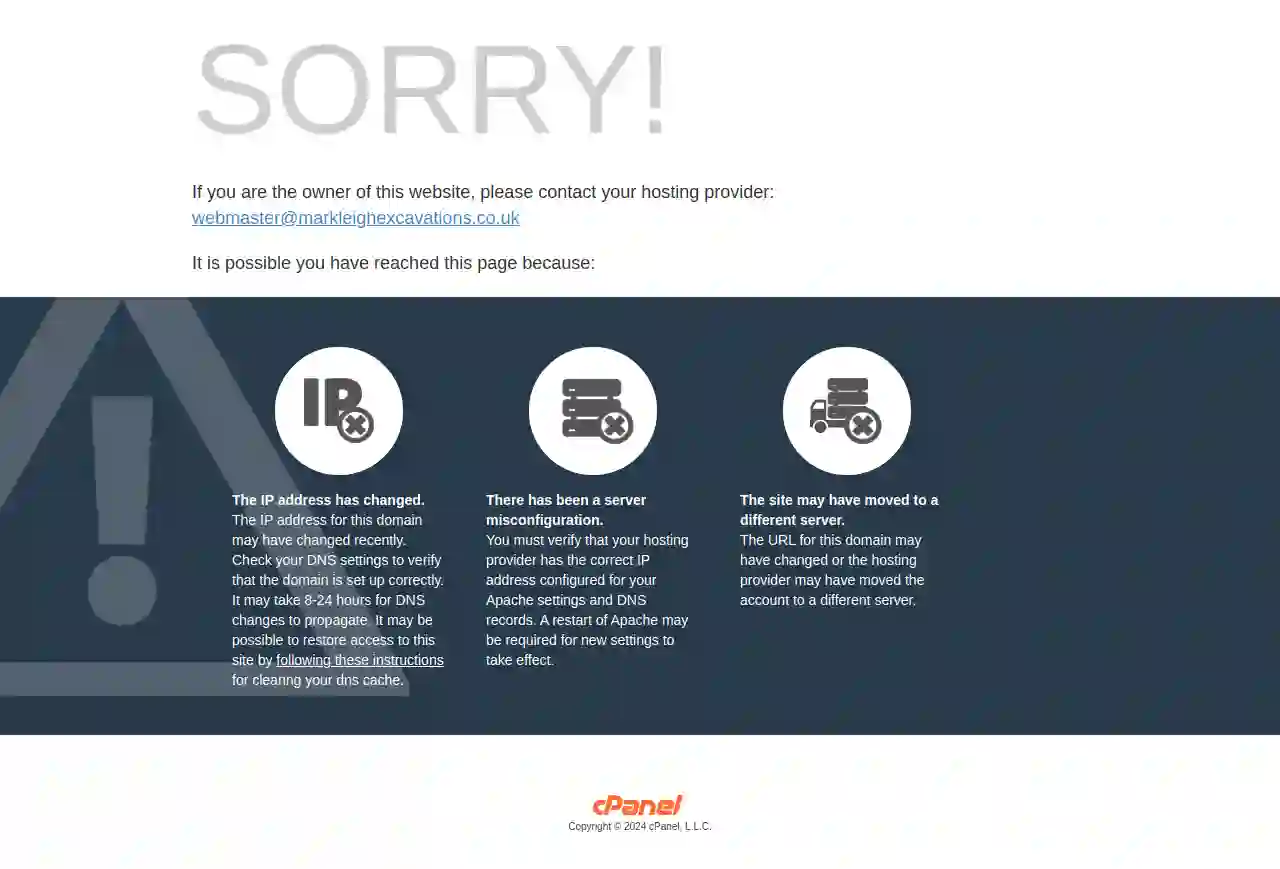Excavation Contractors Astley
Find top Excavating Contractor in Astley
Receive 3 FREE Excavation Services quotes for your project today! Compare profiles, reviews, accreditations, portfolio, etc... and choose the best offer.

Mark Leigh Excavations Ltd
Unit 1, The Maltings, Colchester Road, Colchester, CO7 6DP, GBMarkleigh Excavations: Your Trusted Partner for Excavation Services Markleigh Excavations is a family-run business with over 20 years of experience in the excavation industry. We are committed to providing our clients with high-quality, reliable, and efficient excavation services. Our team of skilled and experienced operators is dedicated to delivering projects on time and within budget. We pride ourselves on our commitment to safety, customer satisfaction, and environmental responsibility. We offer a wide range of excavation services to meet the needs of our clients, including: Site clearance Foundation excavation Drainage installation Road construction Demolition And more! We are equipped with a fleet of modern and well-maintained machinery to handle any project, big or small. We also have a team of experienced engineers and project managers who can provide expert advice and guidance throughout the entire process. At Markleigh Excavations, we believe in building strong relationships with our clients. We are committed to providing excellent customer service and ensuring that our clients are completely satisfied with our work. Contact us today to discuss your excavation needs.
- Services
- Why Us?
Get Quote- AL
ALLAN DAVIES EARTHWORKS LTD
56 reviewsLeigh, GB- Services
- Why Us?
Get Quote - WL
WL Piling
4.714 reviewsLeigh, GB- Services
- Why Us?
Get Quote - La
Lawrence grab & Tipper Hire excavation Groundwork’s Aggregates
4.315 reviewsLeigh, GB- Services
- Why Us?
Get Quote - Ha
Hanchant Construction Ltd
Leigh, GB- Services
- Why Us?
Get Quote
Over 13,059+ Excavation Pros on our platform
Our excavation contractors operate in Astley and surroundings!
ExcavationHQ has curated and vetted Top Excavation Contractors arround Astley. Find a reliable contractor today.
Frequently Asked Questions About Excavation Contractors
- Soil Type and Stability: Stable, cohesive soils allow for deeper excavations than loose or unstable soils.
- Groundwater Level: Excavations below the water table require dewatering techniques to manage water intrusion.
- Equipment and Resources: The size and capabilities of excavation equipment influence the achievable depth.
- Safety Regulations: OSHA and other safety regulations impose limitations on trench depths without proper shoring or sloping.
- Project Requirements: The purpose of the excavation (basement, pool, foundation) determines the necessary depth.
- Hauling to Designated Disposal Sites: Transporting excavated material to approved landfills or recycling centers.
- Recycling or Reuse: If suitable, some excavated soil might be recycled for other projects or reused on-site for landscaping or backfilling.
- Complying with Regulations: Adhering to local and environmental regulations for soil disposal to prevent contamination or illegal dumping.
- Excavators: Versatile machines with a bucket, arm, and rotating cab for digging, lifting, and moving earth.
- Backhoes: Similar to excavators but with a digging bucket on the back and a loader bucket on the front, ideal for trenching and smaller excavations.
- Bulldozers: Powerful machines with a large blade for pushing earth, clearing land, and leveling surfaces.
- Skid Steers: Compact and maneuverable loaders with various attachments (buckets, forks) for digging, loading, and grading in tight spaces.
- Trenchers: Specialized machines for digging narrow trenches for utilities.
- Dump Trucks: Vehicles for hauling excavated material to disposal sites.
How deep can you excavate?
How do you handle soil disposal after excavation?
What equipment is used for excavation?
What is the difference between excavation and grading?
Excavation: Primarily involves removing earth or other materials from a site. It's about digging down and creating space.
Grading: Focuses on shaping and leveling the ground to a specific slope or elevation. It's about adjusting the existing terrain.
For example, you might excavate a foundation and then grade the surrounding area to ensure proper drainage and a level surface for landscaping.
How deep can you excavate?
- Soil Type and Stability: Stable, cohesive soils allow for deeper excavations than loose or unstable soils.
- Groundwater Level: Excavations below the water table require dewatering techniques to manage water intrusion.
- Equipment and Resources: The size and capabilities of excavation equipment influence the achievable depth.
- Safety Regulations: OSHA and other safety regulations impose limitations on trench depths without proper shoring or sloping.
- Project Requirements: The purpose of the excavation (basement, pool, foundation) determines the necessary depth.
How do you handle soil disposal after excavation?
- Hauling to Designated Disposal Sites: Transporting excavated material to approved landfills or recycling centers.
- Recycling or Reuse: If suitable, some excavated soil might be recycled for other projects or reused on-site for landscaping or backfilling.
- Complying with Regulations: Adhering to local and environmental regulations for soil disposal to prevent contamination or illegal dumping.
What equipment is used for excavation?
- Excavators: Versatile machines with a bucket, arm, and rotating cab for digging, lifting, and moving earth.
- Backhoes: Similar to excavators but with a digging bucket on the back and a loader bucket on the front, ideal for trenching and smaller excavations.
- Bulldozers: Powerful machines with a large blade for pushing earth, clearing land, and leveling surfaces.
- Skid Steers: Compact and maneuverable loaders with various attachments (buckets, forks) for digging, loading, and grading in tight spaces.
- Trenchers: Specialized machines for digging narrow trenches for utilities.
- Dump Trucks: Vehicles for hauling excavated material to disposal sites.
What is the difference between excavation and grading?
Excavation: Primarily involves removing earth or other materials from a site. It's about digging down and creating space.
Grading: Focuses on shaping and leveling the ground to a specific slope or elevation. It's about adjusting the existing terrain.
For example, you might excavate a foundation and then grade the surrounding area to ensure proper drainage and a level surface for landscaping.